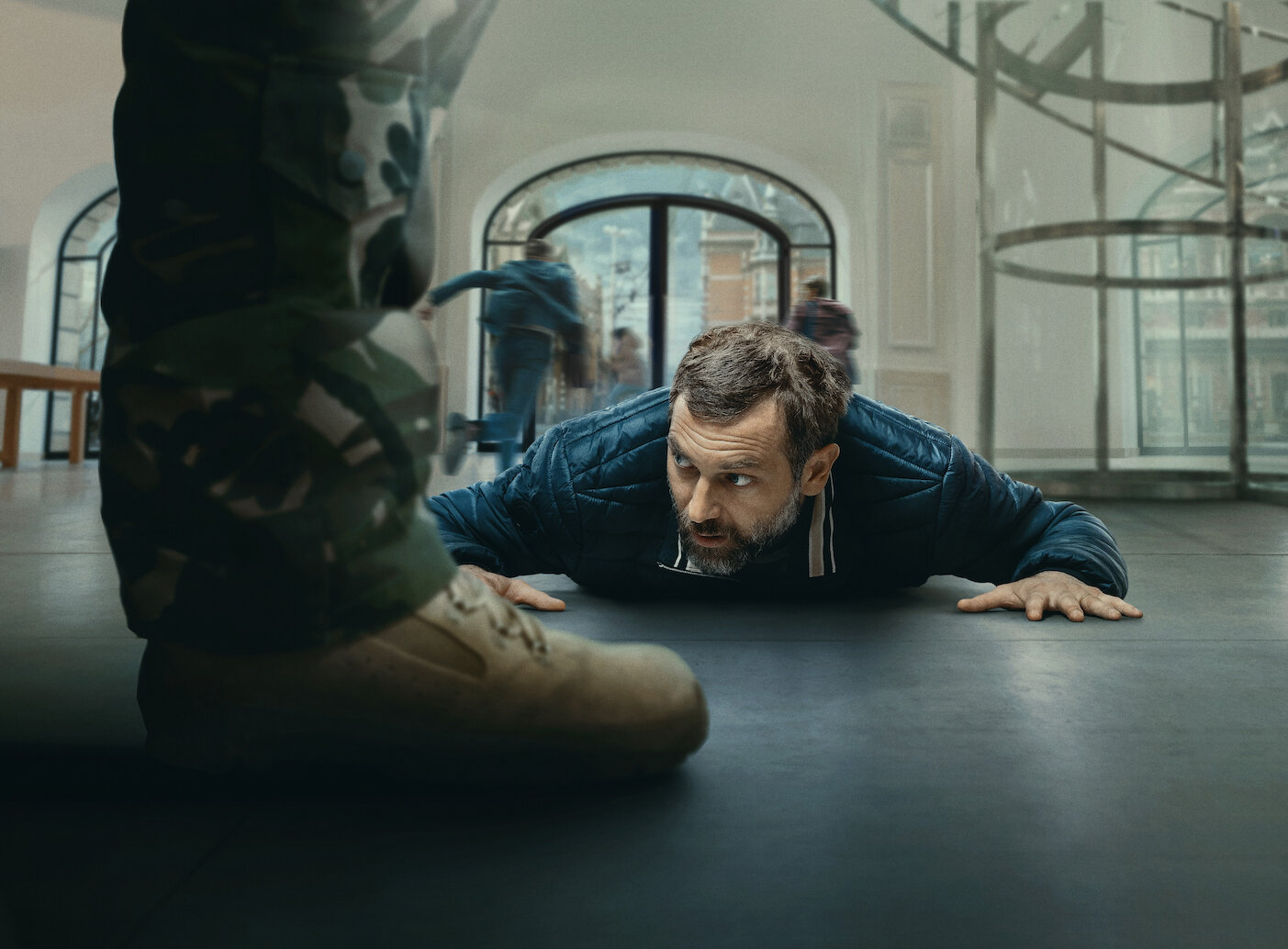iHostage (2025): A Real-Life Thriller That Balances Tension and Restraint
iHostage, directed by Bobby Boermans, is a tense dramatization of the real-life hostage crisis that unfolded at an Apple Store in Amsterdam’s Leidseplein district in 2022. Released on Netflix in 2025, the film reconstructs the intense five-hour standoff that shocked the Netherlands and made international headlines. While the premise offers ample material for suspense, iHostage chooses a more grounded, procedural approach, focusing less on sensationalism and more on emotional accuracy and psychological tension.
The plot centers around Ilian, an unsuspecting customer who enters the Apple Store to replace a lost pair of AirPods, only to find himself held at gunpoint by a desperate man demanding millions in cryptocurrency. The hostage taker, Ammar, is portrayed as a volatile and disturbed individual, while negotiator Lynn serves as the calm, strategic mind behind the police response. The film unfolds in real time, switching between the confined atmosphere inside the store and the pressure-filled command center where negotiators work tirelessly to end the crisis without bloodshed.

One of the film’s most compelling features is its dedication to realism. The filmmakers consulted law enforcement professionals, Apple staff, and even the actual hostage to ensure authenticity. The result is a thriller that feels more like a documentary in tone—complete with body cam footage aesthetics, sparse music, and a tightly composed sound design that emphasizes anxiety and disorientation. The cinematography remains steady and observational, often lingering on silent tension rather than loud action, which heightens the unease.
The performances are subtle but effective. Admir Šehović, who plays Ilian, brings quiet strength and relatability to the role of the hostage, while Soufiane Moussouli’s portrayal of Ammar walks a fine line between menace and mental instability. Loes Haverkort as Lynn delivers a standout performance, channeling quiet authority, empathy, and the pressure of needing to make life-or-death decisions in real time.

While iHostage has been praised for its realism and restraint, it has also received criticism for its pacing and minimal character development. Some viewers may find the film too slow or emotionally distant, particularly compared to more dramatized hostage thrillers. The deliberate choice to focus only on the essentials of the crisis, rather than delving into elaborate backstories or adding fictional twists, may not appeal to everyone. Still, this stripped-down approach underscores the director’s intent to portray the incident as it happened, with respect and accuracy.
The climax, mirroring the real-life ending of the standoff, is sudden and impactful. When the hostage escapes under the pretense of fetching water, the gunman chases after him, triggering a swift response from police, who neutralize the suspect with a police vehicle. The moment is shocking in its abruptness but grounded in realism, leaving viewers with a mix of relief and unease.

In summary, iHostage is a tense, methodical film that delivers a realistic account of a modern hostage situation. It avoids sensationalism in favor of emotional authenticity, and while its minimalist storytelling may not please thrill-seekers, it offers a sobering and respectful portrayal of a moment when chaos met courage in an ordinary tech store.



